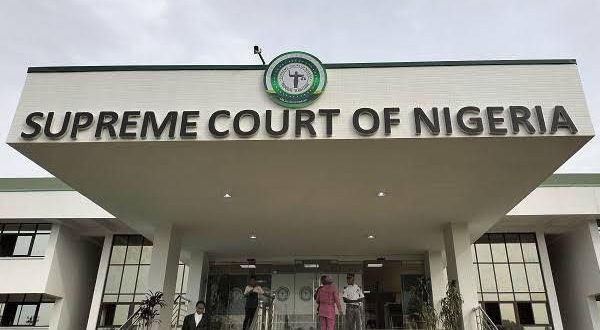Taiwo Niyi
The Supreme Court of Nigeria has dismissed a lawsuit filed by 16 states challenging the constitutionality of the Economic and Financial Crimes Commission (EFCC) and two other anti-corruption agencies.
The states sought to invalidate the Acts establishing the EFCC, the Independent Corrupt Practices and Other Related Offences Commission (ICPC), and the Nigerian Financial Intelligence Unit (NFIU).
Delivering the lead judgment, Justice Uwani Abba-Aji held that the states’ claims lacked merit, stating that the EFCC, established by an Act of the National Assembly, is a lawful body, emphasized that the EFCC Act does not require ratification by state Houses of Assembly since it is not a treaty but a convention.
“The states were completely wrong in holding that the EFCC is an illegal and unlawful body,” Justice Abba-Aji declared.
The suit, initially filed by Attorneys-General of states including Ondo, Oyo, Edo, and Katsina, argued that the EFCC Act violated Section 12 of the 1999 Constitution, which requires state assemblies to ratify any international treaty adopted into Nigerian law
However, the Apex Court dismissed this argument, affirming the EFCC’s legal standing.
While some states, such as Anambra, Ebonyi, and Adamawa, withdrew from the suit during proceedings, others like Imo and Bauchi joined as co-plaintiffs.
Defense of EFCC’s Relevance
The EFCC’s Director of Public Affairs, Wilson Uwujaren, welcomed the judgment, insisting the commission remains vital to Nigeria’s anti-corruption fight.
“Nigeria cannot survive without the EFCC given our corruption challenges,” Uwujaren stated during a Channels Television interview.
He described the lawsuit as a ploy by those “feeling the heat” of the EFCC’s work.
Support for Anti-Graft Institutions
Prominent human rights lawyer Femi Falana, SAN, also weighed in, describing the EFCC and ICPC as essential to Nigeria’s progress.
“What we should be demanding are measures to make these institutions autonomous, not under government control,” Falana said.
However, critics like Senior Advocate of Nigeria Olisa Agbakoba have maintained that the EFCC was “unconstitutionally established.” Agbakoba argued that its creation exceeded the powers of the National Assembly, urging a legal review of the agency’s framework.
Despite these debates, the Supreme Court’s ruling reinforces the EFCC’s position as a critical agency in Nigeria’s fight against corruption.



